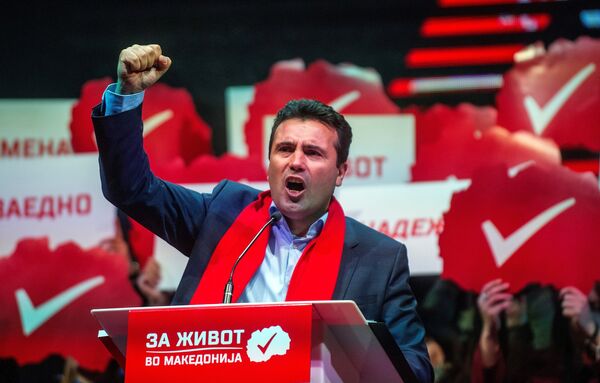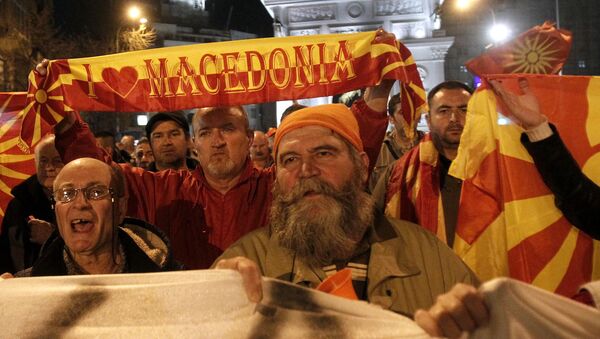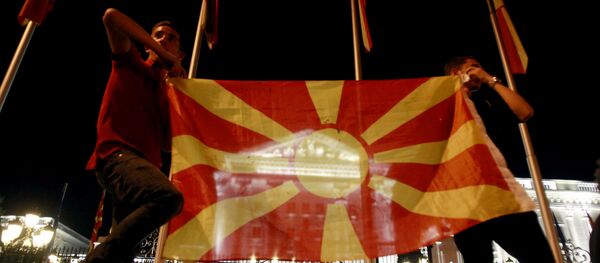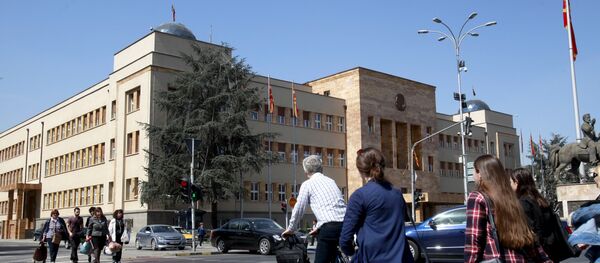Last week, Macedonian President Gjorge Ivanov officially refused to give the Social Democratic Union of Macedonia-led coalition a mandate to form a government, accusing SDUM leader Zoran Zaev of jeopardizing the country's sovereignty.
The SDUM, which came in second in December's elections, began talks with the Albanian minority Democratic Union for Integration (DUI) party after the Christian Democratic VMRO-DPMNE, the other of Macedonia's two major parties, failed to secure a coalition with the DUI in late January after winning a plurality in the elections.
Former Prime Minister Nikola Gruevski, leader of the VMRO-PRMNE, has said that his party would support a SDUM-led minority government, if it gives up the Tirana Platform. Together with the language status issue, the platform is also believed to demand changes to the country's flag and national anthem.
"We are ready to support the SDUM to form a minority government if they give up on the law on languages, the Tirana Platform, and the proposal to redefine and degrade Macedonia," Gruevski said, appearing on Macedonian television late last month. "If Zaev wants to be prime minister so much, we'll let him implement his program, so long as it isn't jeopardizing state and national interests. He can attack us if he wants, but not the state," he added.
Asked to provide some insight into Macedonia's ongoing political crisis, Svetin Chilimanov, former advisor to the president, told Sputnik that if the parliamentary opposition moves forward and attempts to form a government without presidential approval, this will become a sort of 'overture to a coup d'état', because such a cabinet of ministers still won't be able to take the necessary instruments of power into its own hands by constitutional means.
"The legitimacy of such a government would be challenged, and not just in Macedonia itself, and would likely result in serious tensions," Chilimanov warned. "It is absolutely obvious that all of this has been invented in order to provoke such a reaction, because the demands of the Albanian parties run contrary to the country's constitution," he added.

Chilimanov recalled that opposition leader Zaev has repeatedly, and for several years now, indicated that he works actively with officials and ambassadors from other countries.
In other words, Chilimanov noted, "Zaev led two campaigns – one for the Albanians, and the other for the Macedonians who supported him."
Worryingly, the expert noted, Zaev has even hinted during the campaign that he might annul the Ohrid Agreement, a peace deal signed by the government and ethnic Albanian separatists back in 2001, in favor of an agreement more favorable to the Albanians. "Albanians," Chilimanov said, "understood this as a proposal for the country's federalization and division."
At the same time, Chilimanov warned that the president's authority is by no means unlimited, meaning that the Constitutional Court might revoke his decision not to give a mandate to the opposition government. Such an eventuality wouldn't end the crisis, but create a situation of dual power which could only further exacerbate the crisis in the Balkan country.





